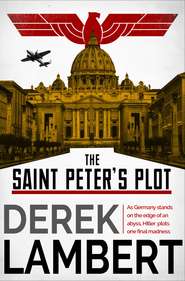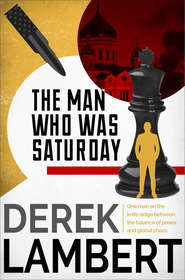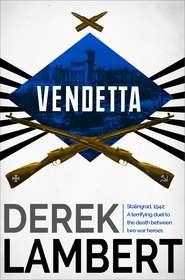По всем вопросам обращайтесь на: info@litportal.ru
(©) 2003-2024.
✖
The Yermakov Transfer
Автор
Год написания книги
2018
Настройки чтения
Размер шрифта
Высота строк
Поля
Chapter 1 (#litres_trial_promo)
Chapter 2 (#litres_trial_promo)
Chapter 3 (#litres_trial_promo)
Chapter 4 (#litres_trial_promo)
Chapter 5 (#litres_trial_promo)
Chapter 6 (#litres_trial_promo)
Chapter 7 (#litres_trial_promo)
Chapter 8 (#litres_trial_promo)
Chapter 9 (#litres_trial_promo)
Arrival (#litres_trial_promo)
Keep Reading (#litres_trial_promo)
Acknowledgements (#litres_trial_promo)
About the Author (#litres_trial_promo)
By the Same Author (#litres_trial_promo)
About the Publisher (#litres_trial_promo)
DEPARTURE (#ulink_e197198d-b028-5180-915c-c23423426c09)
Among those on board the Trans-Siberian Express leaving Moscow’s Far Eastern station at 10.05 on Monday, October 1, 1973, was the most powerful man in the Soviet Union and the man who planned to kidnap him.
They sat four coaches apart: the Kremlin leader, Vasily Yermakov, in a special carriage surrounded by militia and K.G.B. as thick as aphides, the kidnapper, Viktor Pavlov, in a soft-class sleeper with a Tartar general and his wife.
Yermakov, burly and jovial, sat at a desk in a black leather, wing-back chair smoking a cigarette with a cardboard filter and watching the K.G.B. screen the last passengers boarding the train. The peasants with their samovars, blankets, punished suitcases and live chickens looked apprehensive; but not as scared as the enemies of the State Yermakov had interrogated in the thirties. That was progress.
He stubbed out the cigarette as if he were squashing a cockroach. The abrupt movement alerted his two bodyguards and nervous secretary who hovered expectantly. Yermakov, as avuncular as Stalin, nodded approvingly: he liked disciplined obedience but not servility which he despised.
He said: “I think it’s going to snow.”
Now it had to snow.
“I think you’re right, Comrade Yermakov,” said the secretary, a pale man wearing gold-rimmed spectacles whose knowledge of Kremlin intrigue had given him neurasthenia.
The two bodyguards in grey suits with coathanger shoulders and pistol bulges at the chest, also voiced their agreement.
And outside it did smell of snow. The sky was grey and bruised, the faces of the crowds, marshalled for Yermakov’s departure, stoic with the knowledge of the months ahead. The atmosphere was appropriate for the journey into Siberia, the journey into winter.
For Yermakov the journey had a magnificent symbolism. The historic Russian theme of pushing east – while the Americans pushed west; the freeing of the Tsars’ manacled armies of slaves; the victorious pursuit of the White Russians; the new civilisation the young Russians had built on foundations of perm frost as hard as concrete.
The trip had been his own idea, already much publicised. A series of rallies in the outposts of the Soviet Union with speeches warning the Chinese massed on the Siberian border, dissidents such as Alexander Solzhenitsyn and Andrei Sakharov, and the Jews agitating to leave Russia for Israel.
He glanced at his wrist-watch as big as a handcuff. Five minutes to go. He drank some Narzan mineral water.
On the platform two plainclothes men hustled a passenger out of the station. A stocky, curly-haired man with a brown, Georgian complexion. He was bent double as if he had been kneed in the groin. Presumably his papers hadn’t been in order; or his passport had been stamped with the word JEW.
Yesterday there had been a Zionist demonstration outside the Central Telegraph Office in Gorki Street. Privately Yermakov thought: To hell with them. Let the trouble-makers go, keep the brains.
He pointed at the prisoner being dragged along, his feet scuffing the ground. “Jew?”
His secretary nodded, polishing spectacles. “Quite possibly. Security is very tight today.”
“In Lubyanka he will have ample time to learn by heart the Universal Declaration of Human Rights. ‘Everyone has the right to leave any country, including his own, and to return to his country.’”
“Article 13, Point 2,” said the secretary, replacing his spectacles.
“The Universal Declaration of Human Treachery,” Yermakov said.
Power flowed strongly in his veins. He stared at the wall-map of Siberia with the railway wandering across it. Now he was Yermak the outlawed Cossack who, in 1581, began the conquest of Siberia for Ivan the Terrible and was rewarded with a breastplate of armour, a silver drinking chalice and a fur cloak from Ivan’s shoulders.
The train throbbed with life, the troops outside snapped to attention. The moment of departure was only partially spoiled by the completion of Yermakov’s line of thought: Yermak’s career was cut short by a band of Tartar warriors: he tried to swim to safety but was drowned by the weight of the breastplate.
* * *
Viktor Pavlov who planned to hold Yermakov to ransom lay on his bunk in the soft-class sleeper with his face close to the sandbag buttocks of the Tartar general’s wife. He doubted at this moment whether the buttocks of Miss World would have aroused him.
From his East German briefcase he took a sheaf of papers covered with the figures and symbols of a scheme to automate the traffic system of Khabarovsk in the Far East of Siberia. To Pavlov, the computerised figures also gave the times agents would board the train, the distance out of Chita that the kidnap would be executed, the wavelengths of the radio messages to be transmitted from five European capitals; the long-range weather forecast and troop deployments east of Irkutsk.
But there was imponderables beyond the computer’s electronic brainpower. For one – a jealous Tartar general who considered his elephantine wife to be irresistible; for another – the arrest of one operator before he had boarded the train (although they had made allowances for casualties); for yet another – the unknown occupant of the bunk above Pavlov. The computer in his brain had allowed for six imponderables.
There were four bunks in the compartment, a small table and lamp, a dearth of space. Pavlov chose the bunk underneath the vacant bunk in case he needed the advantage: he presumed the general had chosen the bunk above his wife in case of some frailty in the structure.
The general’s wife was unpacking a suitcase. Flannel nightdress, striped pyjamas, toilet bag, bottle of Stolichnya vodka, bottle of Armenian brandy, two loaves of black bread, goat’s cheese, four onions and a pistol.
The general, who was in civilian clothes, loosened his tie and said: “Nina, the vodka.” He took a swig, wiped the neck of the bottle and stared at Pavlov in case he had been sexually aroused by a movement of pectoral muscle, a creak of corset. Reassured, he handed the bottle to Pavlov.
Pavlov shook his head. “No thanks.”
The general frowned, stroking his drooping moustache.
An enemy in the compartment, Pavlov decided, was an unnecessary complication, but so was liquor.
The general’s wife began to peel an orange so that, with the vodka, the compartment smelled like a sweet liqueur. Juice spat in Pavlov’s eyes.
He explained: “I’ve got work to do.” Waving the sheaf of papers. “I must have a clear head.” He had learned the wisdom of telling lies which were also the truth.
The general took another swig. “A scientist?” His tone was hopeful because, of the two classes of citizens – The Military and others – scientists ranked highest in the latter. “Nuclear, perhaps?”
Другие электронные книги автора Derek Lambert
The Red Dove




 3.67
3.67
Vendetta




 0
0











